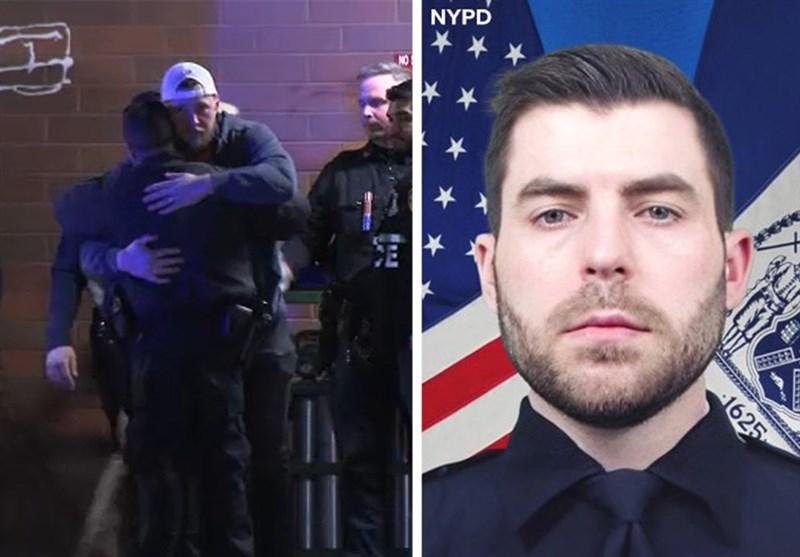Scrutinizing NYPD Actions in the Queens Teen Shooting Incident
The family of a teenager from Queens, who was fatally shot by NYPD officers, has initiated a lawsuit claiming that law enforcement missed vital chances to de-escalate the confrontation before it escalated to deadly force. The complaint asserts that officers bypassed essential conflict resolution strategies, opting instead for a rapid escalation without fully exploring less aggressive alternatives. This case raises broader questions about police tactics in high-stress situations, particularly when interacting with young and vulnerable individuals.
Central allegations in the lawsuit include:
- Delayed deployment of negotiation teams: Officers reportedly failed to engage specialized negotiators promptly, losing valuable time that might have eased tensions.
- Insufficient personnel and resources: The responding unit was allegedly understaffed and lacked adequate preparation for a peaceful resolution.
- Force-first policies: The lawsuit contends that departmental guidelines favor immediate use of force over communication in critical moments.
| Area of Concern | Alleged Issue | Consequences |
|---|---|---|
| Response Timing | Premature engagement without tactical assessment | Unnecessary escalation of conflict |
| Officer Preparedness | Lack of comprehensive de-escalation training | Lost opportunity to save a life |
| Command Oversight | Inflexible adherence to protocol during crisis | Inadequate situational management |
Family Claims Missed Opportunities for De-escalation
The teenager’s family argues that officers neglected to apply essential de-escalation strategies that are designed to defuse volatile encounters before resorting to lethal force. Their lawsuit highlights that the police did not utilize several key interventions, including:
- Engaging in calm, verbal negotiation
- Calling upon crisis intervention specialists trained in mental health emergencies
- Using non-lethal restraint options such as tasers or pepper spray
- Maintaining a safe physical distance to reduce tension and avoid confrontation
The family contends that if these measures had been implemented, the fatal shooting might have been averted, emphasizing a premature escalation by law enforcement rather than seeking peaceful alternatives.
| De-escalation Method | Potential Positive Outcome |
|---|---|
| Verbal Negotiation | Soothing the individual and lowering hostility |
| Crisis Intervention Team | Expert handling of mental health crises |
| Non-lethal Restraints | Subduing without causing fatal harm |
| Maintaining Distance | Reducing the likelihood of physical altercations |
Advocating for a Comprehensive Overhaul of Police Training
In response to the Queens shooting, legal analysts and community leaders are calling for a nationwide reassessment of police training programs. Critics argue that many current protocols emphasize force over communication, leaving officers unprepared to handle sensitive situations involving youth or individuals experiencing mental health challenges. Reform advocates stress the importance of integrating advanced de-escalation techniques, cultural competence, and mental health awareness into law enforcement education.
Essential elements recommended for modernized training include:
- Realistic scenario-based drills that simulate complex, unpredictable encounters rather than scripted exercises
- Ongoing psychological assessments to ensure officers maintain mental fitness for duty
- Mandatory implicit bias training to confront and mitigate unconscious prejudices affecting decision-making
- Community partnership initiatives designed to build trust and transparency between police and residents
| Training Component | Objective | Anticipated Benefit |
|---|---|---|
| De-escalation Skills | Minimize physical confrontations | Decrease in fatal incidents |
| Cultural Competency | Improve understanding of diverse populations | Enhanced community relations |
| Bias Recognition | Identify and reduce unconscious prejudices | More equitable policing |
Legal Perspectives on Enhancing Police Accountability
The lawsuit brought by the family of the Queens teenager has reignited important debates among legal experts about the future of police accountability frameworks. This case exposes shortcomings in current de-escalation policies and may serve as a catalyst for legislative changes aimed at curbing fatal encounters between law enforcement and civilians. Legal analysts predict increased judicial scrutiny of police conduct and departmental rules, potentially leading to more stringent standards governing the use of force.
Key areas of focus for potential reform include:
- Reevaluating qualified immunity protections, which often shield officers from civil liability in use-of-force cases.
- Mandating enhanced training programs that prioritize conflict resolution and mental health crisis management.
- Establishing independent oversight commissions to impartially investigate incidents involving police use of force.
| Proposed Reform | Expected Effect |
|---|---|
| Expanded De-escalation Training | Fewer lethal outcomes |
| Independent Review Boards | Greater transparency and accountability |
| Policy and Conduct Oversight | Increased public confidence in law enforcement |
Final Thoughts on the Queens Teen Shooting Case
The lawsuit filed by the family of the Queens teenager asserts that crucial de-escalation opportunities were neglected by NYPD officers, culminating in a tragic and preventable death. As the case progresses through the legal system, it shines a spotlight on persistent issues within police protocols and underscores the urgent necessity for reforms aimed at safeguarding lives. To date, the NYPD has not publicly addressed the allegations. The resolution of this lawsuit could have far-reaching consequences for law enforcement training standards and accountability measures in New York City and beyond.













